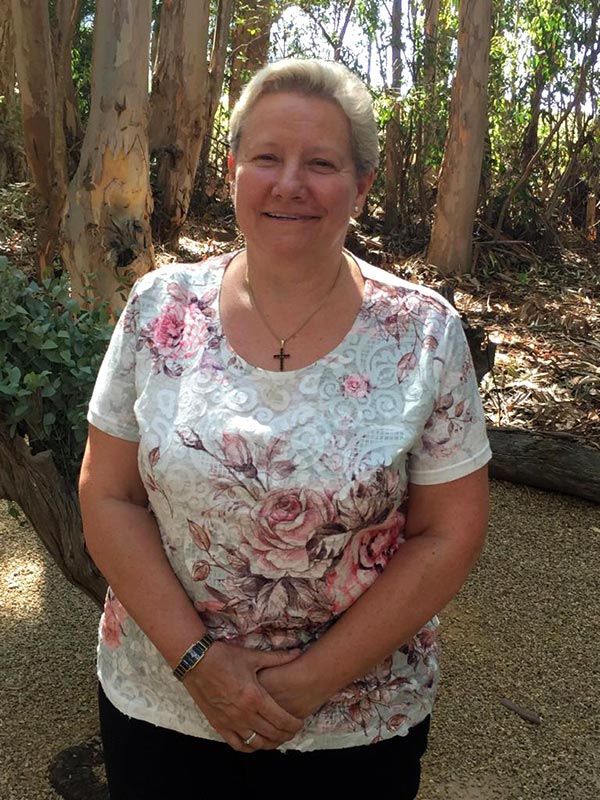COVID-19 may be life threatening even without the ‘typical’ symptoms
May 20, 2020
Virus can trigger damaging immune overreaction ‘storm’ in serious cases
People who develop serious complications arising from novel coronavirus SARS-CoV-2 infection do not necessarily experience the symptoms most commonly associated with COVID-19: cough, shortness of breath, and a sore throat.
“As medical understanding of COVID-19 develops globally, studies are increasingly indicating that the condition can present in widely diverse ways,” says Dr Adri Kok, a specialist physician and president of both the International Society for Internal Medicine
and the Faculty of Consulting Physicians of South Africa.
“In addition to asymptomatic [showing no symptoms] carriers of the virus, it has been observed that some patients do not exhibit the respiratory symptoms that are most typical of COVID-19, and yet they develop sudden and potentially life-threatening complications arising as a result of the viral infection.”
Dr Kok, who practises at Netcare
Union and Netcare Clinton hospitals in Alberton, says that internationally, cases have been documented where patients present for the first time in an emergency setting with stroke, heart attack or various types of organ failure, and testing then reveals these patients to be COVID-19 positive.
“As more studies become available, we are realising that COVID-19 is an extremely varied and unpredictable condition, and there are reports of even young people suffering a stroke, which occurs when a part of the brain is deprived of oxygen due to a blood clot, as a first indication that they have COVID-19.
“Although this virus primarily affects the upper airway and then the lungs due to droplet spread, COVID-19 may set in motion a series of reactions in the body, which may attack the small blood vessels that are crucial to the functioning of other organs including the heart, kidneys, and brain,” she says.
“Sometimes, the body has an overzealous reaction to an infection, known as a ‘cytokine storm’, which can lead to serious complications in some cases where people have contracted COVID-19. Cytokines are proteins that our bodies release to communicate with various cells to co-ordinate bodily responses, as is the case when our immune system stimulates inflammation to fight infection, or clotting to help repair damaged tissues.
“It has been suggested that in some COVID-19 patients who progress to a more advanced stage of the illness, a cytokine storm causes a physiological change in the pneumocytes of the lungs and this then has a pro-thrombotic or clot-causing effect, potentially leading to abnormal clotting in small blood vessels. This blood clotting is known as thrombosis.”
Apart from stroke, COVID-19 positive patients can also present with cardiovascular damage such as acute ischaemic heart disease
or pulmonary embolism, a medical emergency caused by a blood clot blocking an artery in the lung, or other organ dysfunction related to thrombosis, including acute kidney failure.
“In addition, it has been observed that COVID-19 can significantly deplete blood oxygen levels even though the patient may not initially feel symptoms of respiratory distress, which is known as ‘silent hypoxia’. By the time people seek medical assistance, their condition may already be serious, with a low oxygen concentration recorded.”
In Netcare hospitals, emergency admissions are cared for in ‘yellow zone’ wards designated for PUIs (persons under investigation), where doctors and nursing staff are able to provide the appropriate levels of care pending the result of their COVID-19 test. Dr Kok says that in addition to COVID-19 testing, which has become standard for all patients being admitted to Netcare hospitals, a D-dimer test, which indicates clotting, must be performed and the blood oxygen level of emergency patients must be monitored.
“These tests help us to detect the severity of the patient’s condition, particularly if they test positive for COVID-19. Supplemental oxygen and blood thinning medication, as appropriate, can help to restore blood oxygen and counteract the abnormal clotting effect,” she says.
“It should also be noted that people who already have any kind of heart or blood vessel disease may be at greater risk for not only contracting COVID-19, but also more severe illness. People with chronic illnesses or co-morbidities, especially those over the age of 55, should remain in close contact with their doctor, either their general practitioner or relevant treating specialist, not only to manage their existing condition but also to monitor any new symptoms that may arise. They should not ignore these symptoms, which must be acted upon promptly with appropriate medical care, in view of the international experience with COVID-19.
“All South Africans should take COVID-19 very seriously. When it is necessary for you to go out, it is important to protect yourself and others as far as possible. Wear a facemask, sanitise your hands and practise social distancing and other precautions in line with Government guidelines and regulations. Although our numbers of positive cases have increased slowly and have not rocketed as in some countries, we are unfortunately still expecting the surge of cases to happen.
“It is important to keep in touch with your doctor, most of whom are consulting either over the phone or via some other means. If you develop a new symptom, no matter whether it is a symptom commonly associated with COVID-19 or not, it is safer not to ignore it. From what we know of COVID-19
so far, better outcomes for many health conditions are usually achieved with early treatment,” she concludes.














